The Impact of Natural Areas Conservancy’s Urban NEST Internship Program
By Natural Areas Conservancy on August 13, 2025
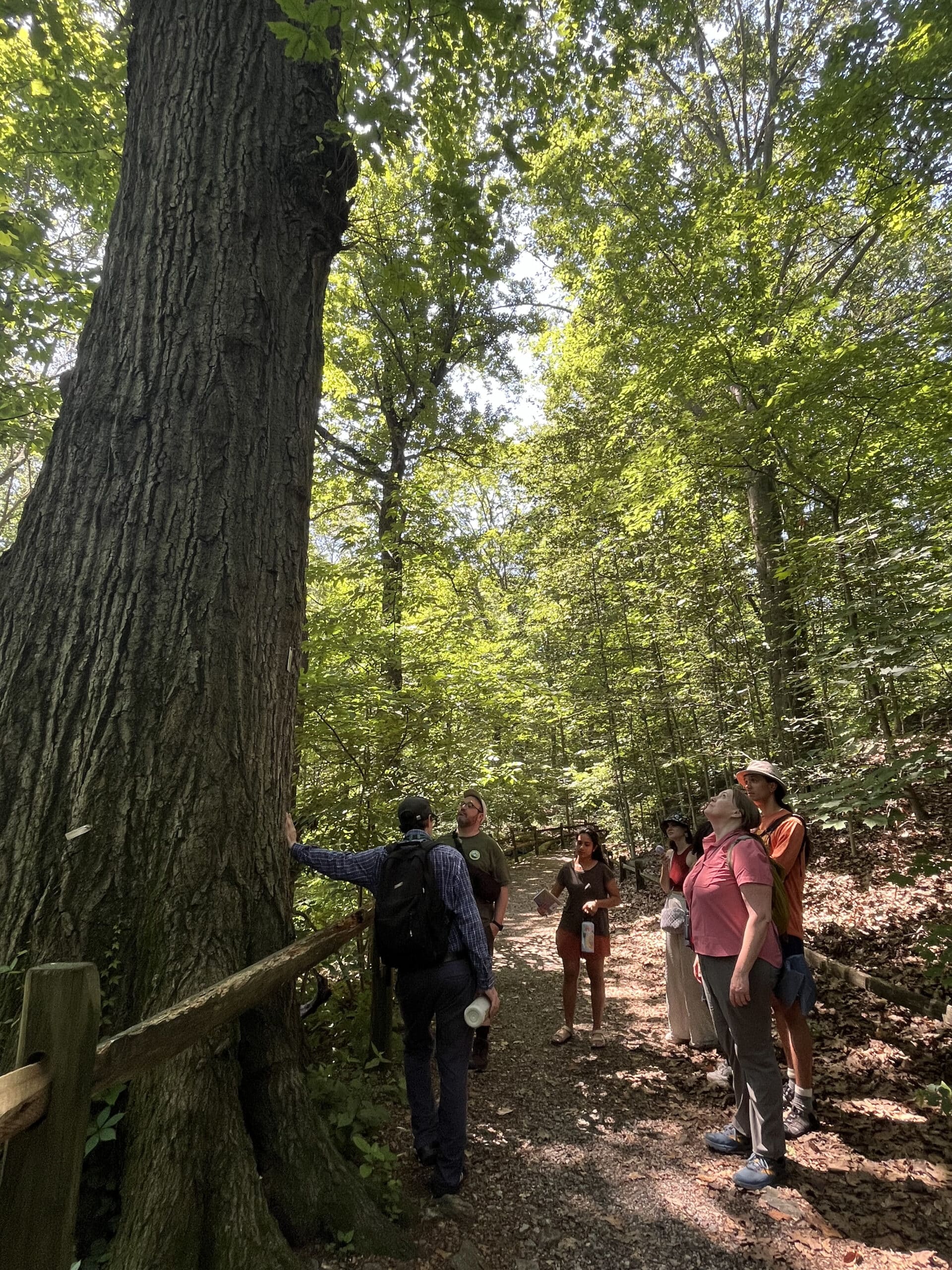
By Natural Areas Conservancy on August 13, 2025

Get to know our Summer 2025 interns, fellows, and seasonal educators! We asked them to describe their NAC experience and to share a few key takeaways from the Urban NEST internship program.
Ecological Assessment interns and fellows support field crews conducting assessment in NYC forests.
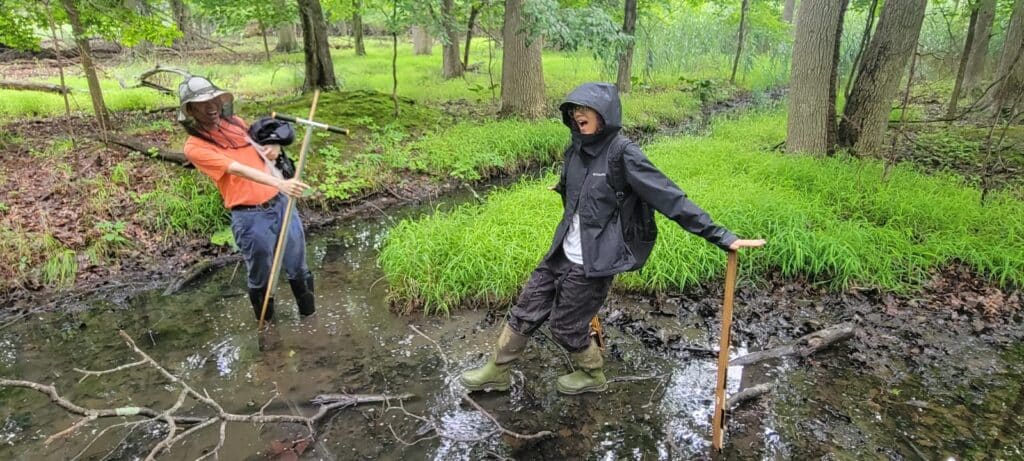
“NEST has given me the opportunity to fully immerse myself into a project, from data collection, to analysis and conclusions. Throughout this process my favourite moments have been where I’m able to learn something new. At the beginning of the fellowship, I had little to no botanical knowledge; now I’m helping others identify plants and trees! It’s comforting to walk around NYC and feel familiarity when seeing a species I recognize from the forest.”
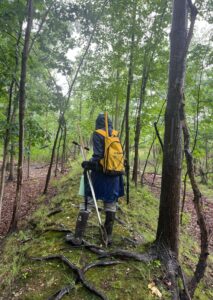
“Regardless of our advancements, humans exist as a part of nature, and I think this fellowship, specifically in the current field season, has done a great job reminding me of that. I haven’t had to leave my home borough of Staten Island to see fields of lizard tails, the threatened American featherfoil, and wetlands teeming with blooming pickerelweed and dragonflies. It is a comforting thought that these habitats manage even in NYC — that we are never truly too far away. It encourages me to do my part in advocating for the support they need.”
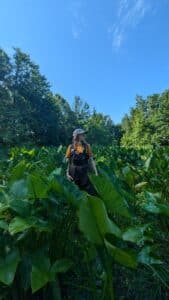
“Throughout this fellowship, the biggest takeaway for me has been about how much I’ve learned from being curious about my surroundings while working in the field. Greeting new plants and wildlife as friends and learning their names has allowed me to foster an even deeper appreciation for our local ecosystems. Now, familiar faces and leaves start popping up all around me and it’s been a lovely practice of mindfulness and learning.”
Trail Mapping fellows collect trail condition data at Floyd Bennett Field in Brooklyn, NY, to help inform future management and restoration plans.
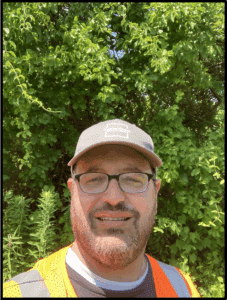
“In interviewing all the practitioners, scientists and everyday nature lovers over the past year I’ve gotten a window into how complex and intricate caring for natural green spaces really is. There are so many ways that people dedicate their time to making sure that wildlife and the environment are resilient and thriving. This is especially significant given the threat of climate change and rapid ecological degradation. Nowhere was this more apparent than our interview with Ron Borque, a long time conservationist, 91 years young and still spending his days working in the garden at the Marine Park Nature Center in Brooklyn. He spoke eloquently about how he and his wife organized various groups to build a pond and bird blind at the North 40 in Floyd Bennett Field that is a prime visiting spot for birders to this day.”
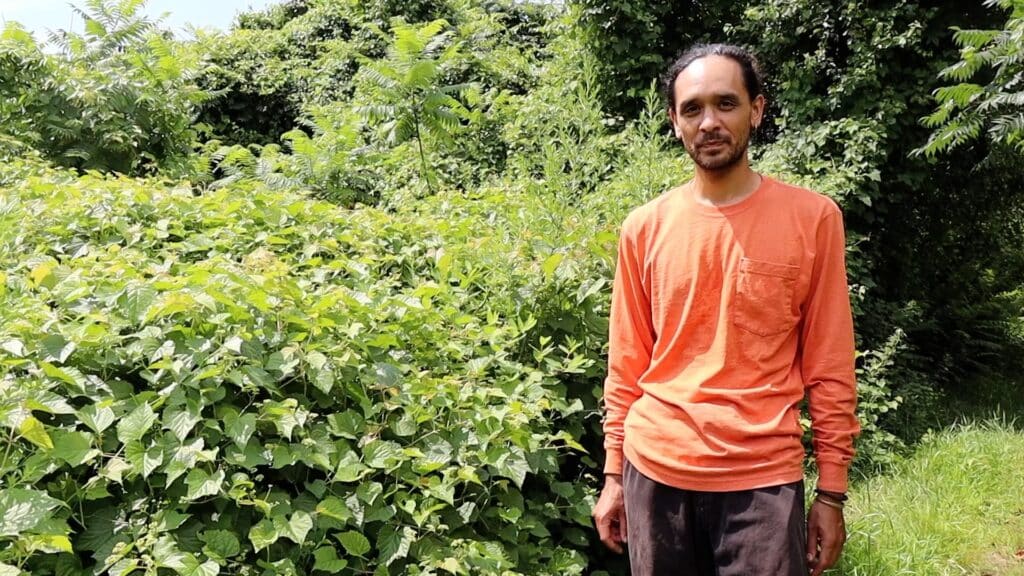
“As a Workforce Development Fellow I have gained a deeper appreciation of the natural environment that I live in (especially the Jamaica Bay!) and the professional landscape that exists in support of it. On my first day as a fellow I attended the Forever Wild Conference at NYBG and was immediately introduced to the many people who protect and restore natural areas around the city. Meeting and hearing from so many passionate stewards was energizing. Also, seeing people from my previous work in urban farming was encouraging confirmation that our urban ecosystem is an interconnected web that relies on a holistic approach to working in green spaces. From that zoomed out look at the professional community as a whole, to a beautiful trail in Inwood where we installed check steps a couple of weeks ago, I feel a lot of gratitude to the people who work so hard as stewards. So many of the features I have taken for granted in the past now stand out to me as intentional efforts to increase plant and wildlife diversity, combat erosion, improve accessibility and more. I am looking forward to being a part of the professional community who works in NYC natural areas.”
Jamaica Bay Seed Increase and Restoration crew members establish, cultivate, and harvest native seed and plants at Floyd Bennet Field.
Jamaica Bay Seed Increase and Restoration Crew Member | Currently pursuing A.S. Environmental Science at LaGuardia Community College
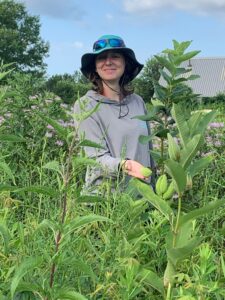
“There are two takeaways that are equally important for me. The first is confirmation that it brings me great joy to work outside in NYC’s natural areas every day. The second is that there is an incredible network of people dedicated to protecting, studying, and restoring NYC’s natural areas. That group of people is also dedicated to uplifting each other, and I’m happy to count myself as a part of it.
The experience that comes to mind is a wild seed collection trip to a serpentine barrens on Staten Island. Serpentine barrens represent a rare ecological community of plants that are adapted to survive among heavy metals in the nutrient-poor soil that forms above serpentine bedrock. Staten Island has the only examples of this ecological community in New York State. I was able to see several plant species I had never seen before, and it was a reminder of how special NYC’s natural areas are.”
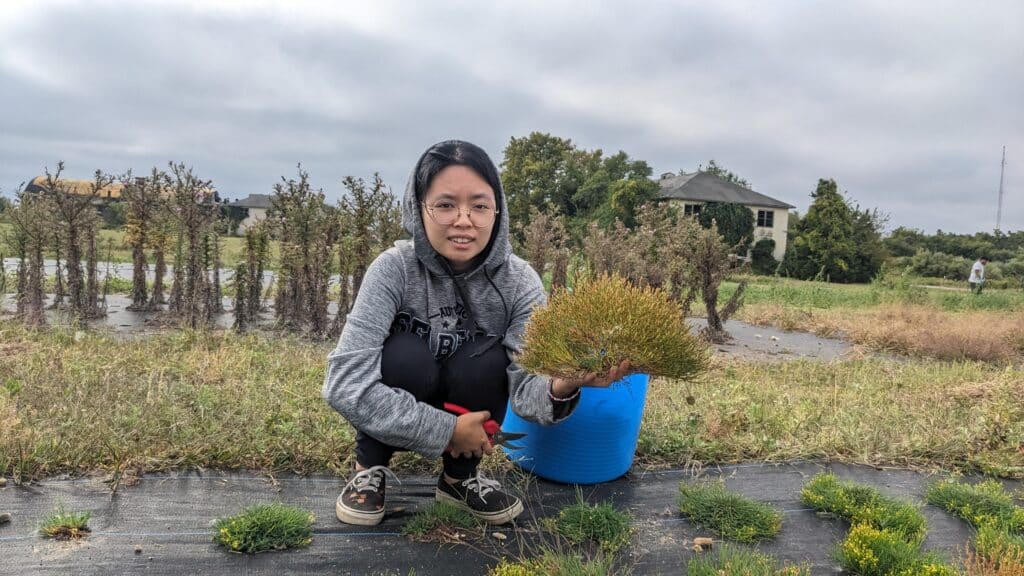
“My biggest takeaway from this fellowship has been that there are so many ways to be involved in environmental work. That can be in the form of field work, it can be in political advocacy, there is work with the community, it can be office work to help keep everything running smoothly. When seeing everyone collaborate and care so deeply about maintaining our natural areas, I am extremely proud to be working alongside them. One instance that comes to mind is when we were working with the Randall’s Island Park Alliance. That day we learned about the different data they collect about the condition of the river and go seining. I distinctly remember just going out in the waders and standing in the cool water as I looked at the city. Through this fellowship, I learned so much about the history of New York City and its natural areas. Because of this, when thinking of our natural areas, I often wonder what New York City looked like before the arrival of European settlers and what unique ecosystems have been lost.”
NNBF interns monitor selected shoreline sites on the Harlem and Bronx Rivers.
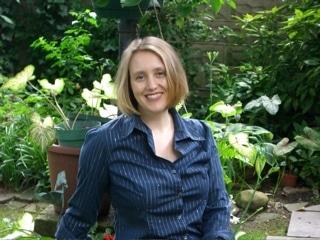
“Collecting ecological data in our heavily built environment showed me that nature is everywhere. Placing our quadrat over and over again, we found incredible biodiversity in the most unexpected places: a “boring” 18 inch square of park lawn hosting ten plant species, or a pile of broken cement blocks on the shore sheltering a marine ecosystem. We also learned how much these natural areas support human communities. Whether passing through or staying awhile, people told us again and again how important it was to their lives to have wildlife, beautiful scenery, and spaces to move freely close by.”
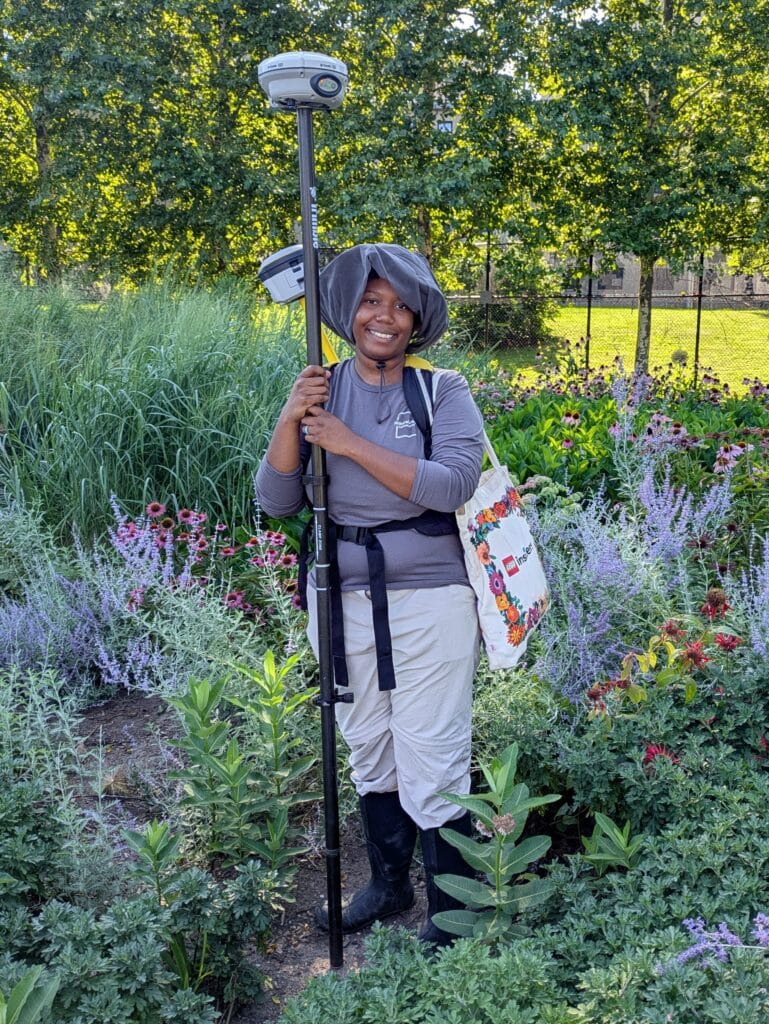
“I am lucky to be a returning CUNY intern this season with the NNBF project–tracking shoreline resilience. Working out in these shoreline/salt marsh sites has been both rewarding and taxing in surprising ways. My biggest takeaway (so far) has been the variability between sites on things like vegetation and wildlife, shoreline infrastructure, maintenance staff, visitorship, and adjacent development. NYC natural areas contain multitudes and each site requires careful consideration to monitor appropriately and adequately. My hope is that this Measuring Success Monitoring Framework (the foundation of this internship project) sets a basis for better stewardship in NYC natural areas through long-term investment in these crucial natural and nature-based shoreline features.”
The urban forest plan fellow coordinates community engagement related to the UFP.
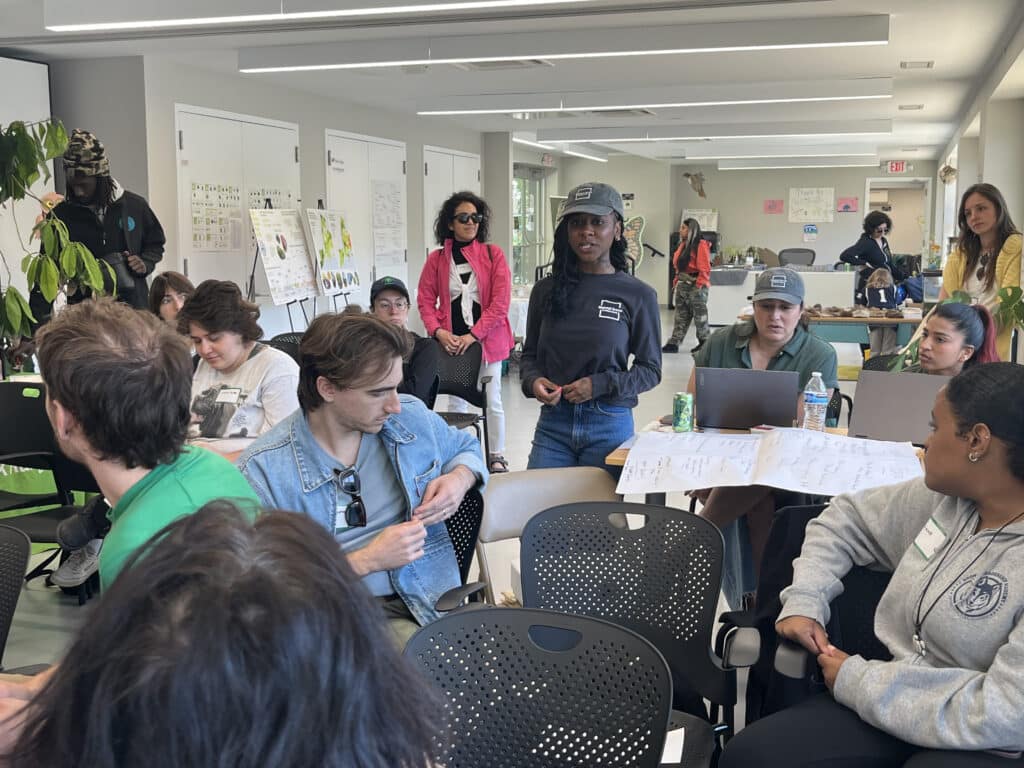
“The most important lesson I’ve gained so far from this fellowship is how much relationship building matters when supporting stewardship in our parks. Working with NAC has shown me how crucial it is to center community in environmental knowledge and planning. While supporting the Urban Forest Plan walkshops, I kept hearing community members talk about their deep, long-standing connections to their local natural areas. From concerns about accessibility and care to simply how these spaces make them feel, it completely shifted how I see them. I now view NYC’s natural areas as active parts of the city’s social and cultural life. It reformed the way I think from just wanting to preserve nature to also wanting to make people feel welcome and invested in these spaces.”
Our seasonal educators lead high school students in our SUN internship program through programming in Staten Island and Queens.
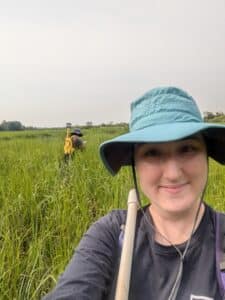
“I first joined the NAC network as a college intern last summer, learning how to collect field data for Natural and Nature-Based Features in NYC saltmarshes. Currently, I’m back as a seasonal environmental educator for the Students Urban Nature (SUN) internship which introduces high school students to environmental field data and research. This experience has shown me how important immersion in nature is for sparking interest that can lead to greater investment in our natural areas. In the first week of our program this summer, the students needed to settle on a research question that could be answered by collecting data from their field site within a city park. After making quiet observations, they had more questions than we could answer in our short summer program! They asked about biodiversity, ecosystem function, and the impact of human activity on our natural areas, questions that many of them had never considered before. This reminded me of how years ago, my free time spent in city parks sparked my own curiosity in local wildlife, leading me to pursue a career in environmental science. I think that the unique accessibility and charisma of NYC natural areas makes them especially suited to affect all kinds of people in a similar way, and I wonder how many other New Yorkers are wandering around their backyard forest or wetland right now engaging in scientific inquiry without even realizing it!”
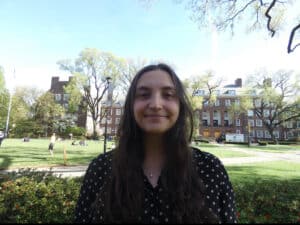
“My biggest takeaway from being an educator so far has been seeing how much knowledge the students are learning. I also feel like I am learning so much with them about the forested wetlands in Staten Island.”
Learn more about the Urban NEST internship program.